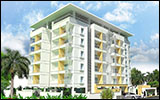Undertaker to the Afghan Taliban in Kandahar
BBC
Afghanistan, 26 March 2012: Undertaker Abdul Hakim has a unique role in the southern Afghan province of Kandahar, the birthplace of the Taliban and their fugitive leader Mullah Mohammad Omar.
He is the only man trusted by the militants to retrieve their dead fighters killed in battle with Nato and Afghan forces. He also returns the bodies of soldiers killed in Taliban-held territory.

Over the past six years, he has ferried scores and scores of corpses between the government and the militants as the war has worsened. And he has buried many others that went unclaimed.
Mr Hakim, with his long white beard, white turban and baggy shalwar kameez, knows what the waiting and grief is like for relatives of the dead - he too has experienced the despair of waiting to get bodies of loved ones back.
Continue reading the main story
“Start Quote
In total so far, I have retrieved 250 bodies” -Abdul Hakim.
His two sons and a son-in-law were killed by Taliban insurgents and Mr Hakim had to wait 14 long, painful days to get their bodies.
Now he is first to hear from Taliban commanders looking for their dead. To help him in his task, the Taliban have given him a letter allowing him to travel between government-controlled areas and Taliban-held territory.
After Mr Hakim gets a call from the Taliban, he visits the provincial morgue - if a dead Taliban fighter is there, he puts the body in a yellow taxi wagon and takes it to the insurgents.
With Mr Hakim’s help, this man found his relative’s grave, 18 months after his death. Mr Hakim, 65, says the local Taliban first asked him nearly six years ago to help retrieve the body of one of their comrades.
He showed the district authorities his volunteer member card for the Afghan Red Crescent - the local counterpart to the ICRC - and then he was given the body.
Soon after, local authorities in Kandahar’s Zheray district asked him to retrieve the bodies of five pro-government forces who had been killed on the battle field. The Taliban let him do so.
After that, he became trusted by both sides.
"In total so far I have retrieved 250 bodies - 127 were Taliban, 28 civilians and the rest were on the government side," says Mr Hakim, who is also known as Malik Kako. Malik is the name traditionally given to an elder who has a great deal of autonomy in a village or district.
Tombstone in a cemetery around 10km north of Kandahar city Mr Hakim tends to each grave with care Mr Hakim says he is trusted by both sides, has letters from both and thus he can travel easily.
Both Nato-led troops and Afghan forces bring dead Taliban fighters to Mirwais public hospital in Kandahar. The bodies are kept in the morgue’s refrigerator for up to two months.
"If no-one claims a body, then I bury it in a cemetery in Zheray district," says Mr Hakim. But what if relatives of dead Taliban contact him months later?
Mr Hakim has a solution. He uses his mobile phone camera to take photos of the dead bodies before he buries them. He says he is looking to record things like eye and hair colour, clothes, watches, rings. Scars or other distinctive marks on the face or body can also help relatives identify a body later on.
"If someone is looking for a missing person or a dead body, they contact me, I show them the photos I take on my mobile phone and compare it with the photo they have. If they match, then I take them right to the grave where they are buried," he says.
The ICRC now keeps a file for every dead body that goes unclaimed and employs a photographer to take photos of some of the bodies, he says. On two occasions, photos he has taken have matched those held by families looking for a missing relative.
Abdul Hakim says he has buried nearly 35 Taliban who were killed in Kandahar city and had no families. Mohammad Aslam, the man in charge of Mirwais hospital morgue, says only the Afghan police know which of the bodies at the morgue belong to the Taliban and which are civilians.
"The police tell us which bodies belong to Taliban. We don’t know. We keep them in the refrigerator. If anyone brings a letter from the police headquarters, we hand over the body, be it a family member with a letter or anyone else," Mr Aslam said.
Mourners at graveyard in Arghandab district, Kandahar (March 2012) Mr Hakim’s photos helped these men find their dead relative near Arghandab district on Sunday.
Dead Taliban are kept in the same morgue as the bodies of Afghan forces or civilians killed by the Taliban. But the difference is in discharging the body from the hospital.
A family member of a civilian or a policeman or soldier has to sign before they are given the body, but for a Taliban body it is Abdul Hakim who signs.
He claims he was even once called by a district chief to help recover the bodies of three American soldiers from a Taliban-controlled area.
"I contacted the Taliban, they agreed and I went with them to a heavily mined area and collected the three American bodies.




 Write Comment
Write Comment E-Mail To a Friend
E-Mail To a Friend Facebook
Facebook Twitter
Twitter  Print
Print 















